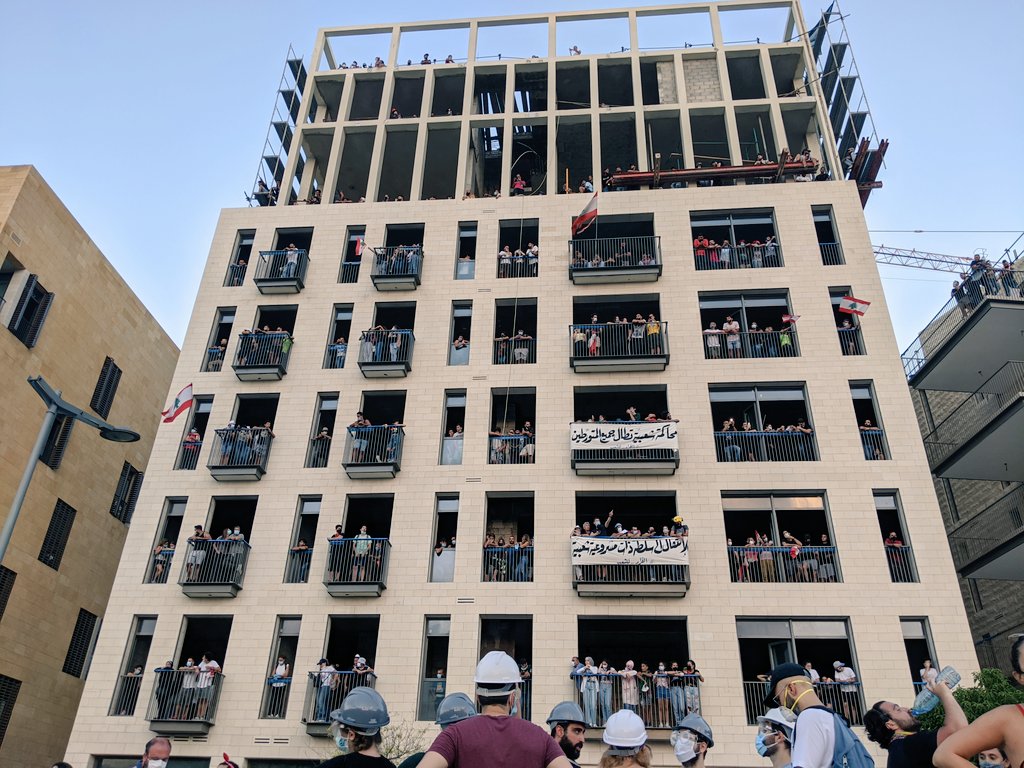
Beirut protesters enter government buildings amid anti-govt demonstrations

Dozens of Lebanese protesters have stormed the buildings of a number of government ministries and the headquarters of the country’s banking association channeling their rage against state and financial institutions after the huge blast that killed over 160.
Earlier on Saturday, protesters entered the empty buildings of the Foreign Ministry and declared it the headquarters of their protest movement. Others fanned out to enter the Economy and Energy ministries, and some walked away with documents claiming they will reveal the extent of corruption that permeates the government. Some also entered the Environment Ministry. Meanwhile, dozens of protesters broke into the banking association headquarters.
#BreakingNews Police fire tear gas at #Beirut protesters. #beirutprotests pic.twitter.com/rhO6IB096R
— British Herald (@BritishHeraldUK) August 9, 2020
Saturday’s rally was in response to the devastating explosion at the Port of Beirut on Tuesday that killed nearly 160 people and wounded 6,000, defacing the capital’s coastline. The explosion was fueled by thousands of tons of ammonium nitrate that had been improperly stored at the citys port for more than six years. Apparently set off by a fire, the blast was by far the biggest in Lebanons troubled history and caused an estimated $10 billion to 15 billion in damage, according to Beiruts governor. It also damaged 6,200 buildings and left hundreds of thousands of people homeless.
Absolutely staggering numbers toay in #Beirut. Square split between peaceful on one side and rioting on the other. We’re hearing live fire every now and then. Over 100 injured so far. #LebanonProtests pic.twitter.com/C4cpYhyJIQ
— Timour Azhari (@timourazhari) August 8, 2020
Protesters demanded justice for the victims and wanted to hold the government accountable, complaining that years of corruption and mismanagement have brought about the disaster.
Public anger had already been rising in Lebanon before the blast because of an unprecedented financial crisis in which the national currency lost 80% of its value. Banks imposed informal capital controls in a controversial effort to control the collapse of the pound and foreign currency flight.
The dire conditions were deepened with rising power cuts and concerns that hospitals were facing severe shortages and financial troubles.

